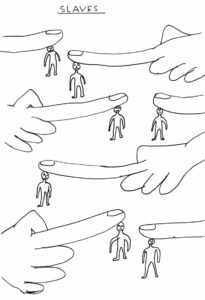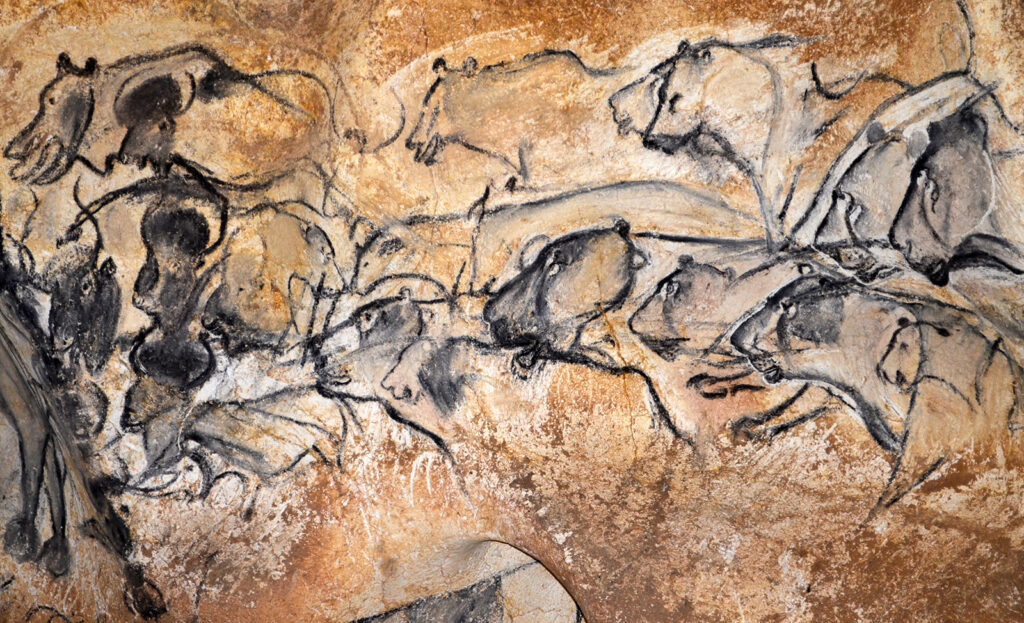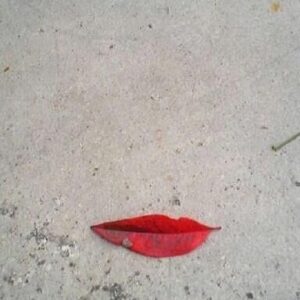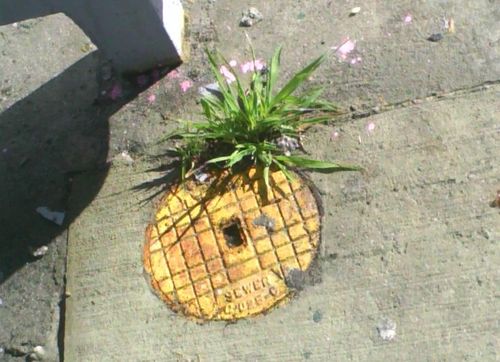I spent this last chapter unwrapping the presupposition that the best work is made with great skill and labour and time AND entirely by the artist (without cheating).
Let’s say we fully align with this statement and spend a great deal of time gaining and honing skills and executing them through highly demanding physical/mental work all by ourselves. Perhaps we have already found what we love and rigour is how we connect with our highest level of being (or maybe we have other personal/complex reasons that propel us). It may be problematic if we think our work is, consequently, the best and feel the need to lord it over others or insist that others do the same as us but otherwise we do what we need to do for our own self-expansion.
I realize I have given more attention to the possible contracting influence of the above statement and this is because it’s the more common experience in my students. For example: I currently guide an adult course called, ‘Drawing for the Completely Intimidated.’ I can tell you that the people who sign up for this course really identify with its title and most often vocalize a deep sense of unworthiness when it comes to drawing and any creative expression. One student even mistakingly referred to the class as “Drawing for the Totally Incompetent” (a title I intend to borrow in the future).

Art by David Shrigley.
I often wonder if every person signing up for this course desperately hopes that a 9 class experience will finally break the evil spell that has kept their mad drawing skills from them…like in a single poof kind of way. The funny thing is, I wouldn’t be that surprised if this single poof happened. This would take a supremely open and ditch-all-baggage attitude, though, and that’s pretty rare. The prevailing attitude that usually shows up is a bit paradoxical: It’s a ‘I think I’m terrible at drawing so I want you to show me all the hard work it’ll take for me to get good but I really don’t want to practice.’ You can see how this connects to the no pain no gain thread I have attended to in the last 4 articles.
In case any of you identify with this paradox, I have conjured the following questions to help expose an overwhelming or discouraging perception of skill, labour and time. If you respond to any of these with a feeling of throwing in the towel, it may be a sign to toss aside some hindering expectations.
*Do you think you have to get serious and try really hard to tap your creativity?
*Do you think it’s going to take a long time to get good enough to create what you really want to make? Does this make you give up on the whole thing?
*Do you believe it will take a lot of effort and a tonne of boring exercises to finally gain the skills you think you want?
*Do you get confused when you seek guidance from established artists and their advice contradicts one another?
*Are you afraid that having fun might be a low class, childish or pointless approach to creativity?
*Do you get ideas and then abandon them because you’re afraid the only way you can manifest them might be cheating?
Let me just say that I have not been making the case that creativity omits challenging work. I am attempting to shed light on a distinction between a labour of love and a labour of suffering. It has been frequently observed and discussed in psychological circles that pain is not enough to motivate people to change. It’s rather shocking that people can survive the most intense dire circumstances and remain stuck in limiting mechanistic patterns of belief and behaviour. Hard work does not guarantee any transformation—it turns out that a strange unpredictable element is required. As previously discussed, this element is a combination of discipline and love.
The discipline I am referring to is not a throw-back to any strict parental control that we may associate with being forced to do things. Creative discipline is connected to wonder and curiosity. If something attracts us, if we love and appreciate it, we’ll naturally find the necessary focus and attention to study it and discover its nature. This attraction happens spontaneously and transforms labour and tedium into a feeling of flowing with a current; a relaxed, clear, enthusiastic and natural state of being.

Lions and Bison. Chamber of Chauvet-Pont-d’Arc Cave. Ardèche, France.
When I first witnessed the ancient images of the Chauvet-Pont-d’Arc Cave on the big screen in a lecture hall, I was moved to tears. What is it about these ancient paintings that is so divine and powerful? For me it is something beyond the skill; I mean I could wonder: were there any practice caves? Did children have to sit with a master and paint boulders for years prior to entering the good copy cave? Did they just trace outlines in the rock? Was this one person’s work, a team effort over time or a multi-generational undertaking? Was it just fly-by-night delinquent behaviour? Or…was this a pure spontaneous act? The people who made them were just as evolved as us and, in the end, trying to grasp how they were made or why they were made only amounts to feeble speculation. Why do I need to know when, seeing these images, I feel deeply connected to some mystery beyond logic, time and space?

Greta Gerwig in character of Abbie in Mike Mills’ film ’20th Century Women’.
Such mystery can be found in all sorts of forms. In Mike Mills 2016 film 20th Century Women, there is a scene about the music of The Raincoats:
Dorothea : Ah, okay so… they’re not very good, and they know that, right?
Abbie : Yeah, it’s like they’ve got this feeling, and they don’t have any skill, and they don’t want skill, because it’s really interesting what happens when your passion is bigger than the tools you have to deal with it. It creates this energy that’s raw. Isn’t it great?

Source unknown. A leaf or lips?
You may be sick of me bringing up the whole wonder and curiosity thing but it really does seem vital and is a pretty simple initiating practice; especially if we are at the point where we’re not tuned into what we love and don’t know where to begin. When I have felt this confusion, I begin to spend some of my day noticing what I appreciate and am attracted to. I read somewhere that Leonardo da Vinci asked his numerous apprentices to wonder about 100 things a day. Apparently, the words “I wonder…” put our mind in a more expansive state that is open to receiving new ideas. I have tried this out for myself and have compared the feeling of “I think…” to “I wonder…” and I personally feel more relaxed and open in the I wonder zone. I’m not “grasping the bird” by trying to force anything, I am delighting in the infinite mysteries of life. These are gestures to allow the spontaneity and receptivity that creativity needs to bring us the inspiration we desire.
Creative work is something organic, something that grows out of us and some material, and it is different for every person for every work that has ever been created. It asks for our awareness and attention. Where is your attention?
If the doors of perception were cleansed,
everything would appear to be as it is, infinite.
WILLIAM BLAKE
*Disclaimer: No copyright infringement intended. I do my best to track down original sources. All rights and credits reserved to respective owner(s). Email me for credits/removal.
